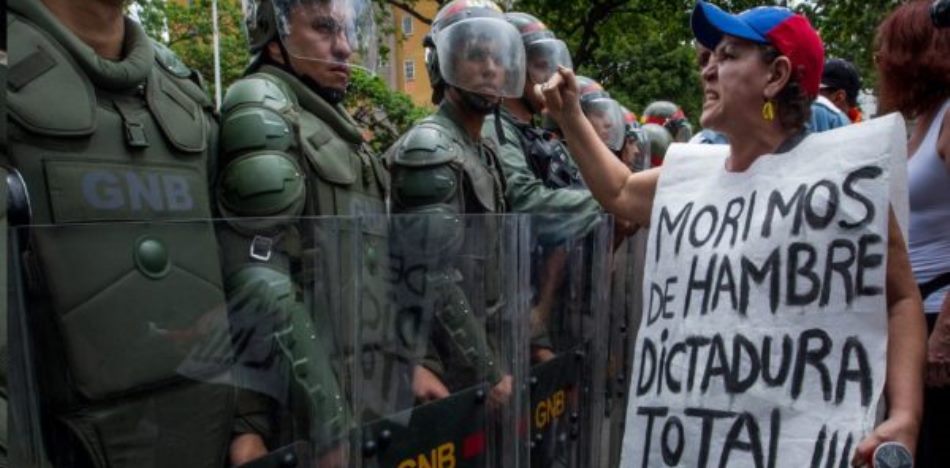
TODAY VENEZUELA / Contrary to many accounts, socialism did not arrive in Venezuela when the late Hugo Chávez took power in 1999. Actually, it had taken root in the country much earlier.
Venezuela has been governed by more or less moderate socialist parties since 1958. These parties were founded by a generation of leaders whose political history dates back to 1928 and who took power for the first time in 1945 through a coup.
They all attempted to implement socialism, understood as the direct or indirect control by the state over the means of production and bring strategic sectors under supervision in order to centrally plan the economy.
Both the military and civilians who have ruled Venezuela since 1945 have aspired to roll out one of many variants of socialism. We had moderate socialism until 1999, when Chávez entered the scene.
The variants had democratic socialism in common: they allowed for alternation through elections and imposed certain limits to the state’s control over the economy.
For decades, the crony mercantilist private sector became so extensive that some people thought it would give way to a market economy, thus overcoming the crisis of the 1990s. However, this was not the case.
In 1999, a group of radical revolutionaries, willing to take socialism to its very end, finally came to power with Hugo Chávez elected as president.
They had first tried to do so through a guerrilla. They then tried participating in elections for decades, but also failed. They even attempted a couple of military coups during the great crisis of the 1990s.
But the sum of former military coup perpetrators freely participating in politics, radical leftist politicians deeply resentful after decades of failures, and the crisis of legitimacy in a populist country that relied on high oil prices that were absent then, finally allowed them to reach power.
Unlike their predecessors, these Chavista revolutionaries were not willing to accept political alternation or economic restraint. They came after everything, as slowly or as quickly as circumstances allowed them to. They have never stopped aiming for total control since.
In just 17 years, they have wrought much more damage than their predecessors. This would not have been possible without the previous material and moral impoverishment brought upon by moderate socialism, in addition to its cultural hegemony that few dared to face.
The Long Way to Destruction
In the mid-twentieth century, Venezuela was an economically developed country with a stable democracy. In 1944, the purchasing power of the average Venezuelan was more than 10 times the current one.
By 1950, Venezuela boasted the continent’s second largest GDP per capita and seventh largest in the world. The wages of Venezuelan workers were higher than of most Western European ones, with exceptions such as Germany, Switzerland, or Luxembourg.
Wealth per capita and technological advance were among the best in the world. So how could Venezuela be in such a mess, you might ask. Because progress and prosperity are not irreversible.
In the 1940s there was barely any inflation in Venezuela. Public debt was insignificant, the bolívar was one of the world’s most stable currencies, and a mostly open economy grew annually at about 10 percent.
During the 1950s, interventionist laws increased and the economy lost its momentum. But getting a license for a small business was no problem. Government employees even went down to the stores and granted the permits in a single day, something that nowadays takes months or years. The economy at the time grew at about 6 percent per year.
The Venezuelan government continued to pass more statist laws in the 1960s. Moreover, it devalued the currency and imposed exchange controls that lasted several years. The constitutional right to private property was also suspended due to a temporary “emergency”. For decades, this suspension allowed the government to establish an economic central planning. In addition, they shut down imports to favor local industries.
The protected and subsidized sectors grew more slowly as the privileged ones amassed great wealth. This lead to absurd situations: businessmen prospered even with bankrupt companies and politicians obtained fortunes of unspeakable origin.
Nationalizations and large state companies in strategic sectors began. Venezuela’s economic growth stalled when the consequences of all these actions arose.
In the 1970s, the government nationalized the oil industry and the central bank. The steel, electricity, and telecommunications industries became state monopolies. The GDP per capita began to fall in the long term as well.
Thus came the final crisis of moderate socialism, which ushered in the current radical socialism. The latter transformed the growing poverty of that time into the overwhelming misery of today.
More and more Venezuelans are eating from the garbage, and children are starving.
From the deceptive oil boom of the 1970s to present, it only got worse. Most Venezuelans understand that every administration thereafter was worse than the previous one. Few admit that, with the only exception of the second Carlos Andrés Pérez one that tried to implement market reforms, they were more of the same.
More socialism in the economy caused more and more material and moral impoverishment. Maintaining that course would ultimately demand totalitarianism: Chavismo.
Now we have finally reached the dictatorship. It remains to be seen how stable it will be, and how long it will last.













